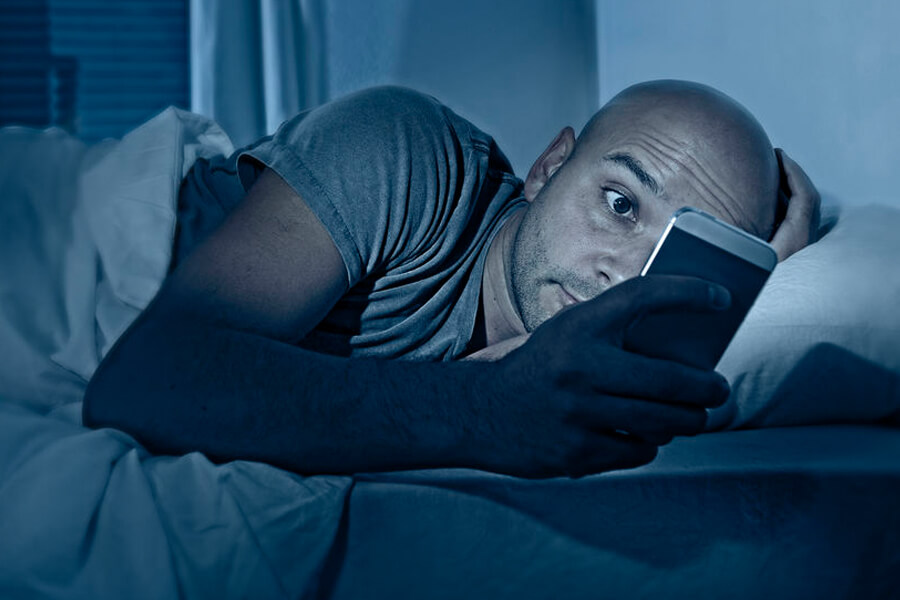Just as extended exposure to light at night can disrupt your sleep and damage your health, so too, can screen time before bed.
Understanding our circadian rhythm
A new study from the Salk Institute for Biological Studies found that using tablets, laptops or smartphones before ben can mess with your circadian rhythm. This, in turn, can lead to health concerns, such as obesity, cancer, cognitive dysfunction, insulin resistance and metabolic syndrome.
Our circadian rhythm regulates sleepiness and wakefulness on a 24-hour cycle by taking cues from a region of the brain that monitors ambient light.
This time-keeping process dictates how our bodies function right down to the tissues, organs and cells.
How exposure to light affects sleep
The new research, which was published in the journal Cell Reports, looked at a group of cells in the retina.
This group of cells don’t send messages to the brain, but they determine how much ambient light to supply signals for biological mechanisms using a protein called “melanopsin.” It’s the regeneration of melanopsis that tells the brain about how much light the retina is getting so the brain can regulate things like consciousness, alertness and sleep.
When we experience bright light for a long period of time and melanopsin is continuously regenerated, the brain gets a signal to block melatonin and we can’t sleep.
The scientists hope that this discovery will generate new treatments to help with circadian rhythm disruption.
Sleep disorders in the United States
The National Heart, Lung, and Blood Institute estimates that sleep disorders affect anywhere from 50 to 70 million people in the U.S.
In addition, between 7 and 19% of American adults surveyed by the Centers for Disease Control and Prevention said they don’t get enough daily sleep or rest. Of those, 40% said they unintentionally fall asleep in the daytime at least once per month.

